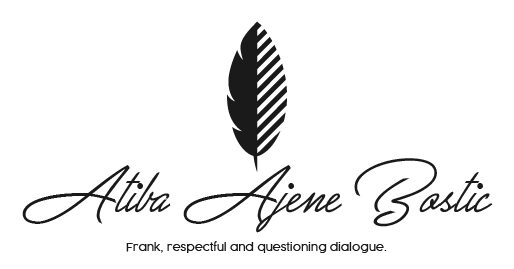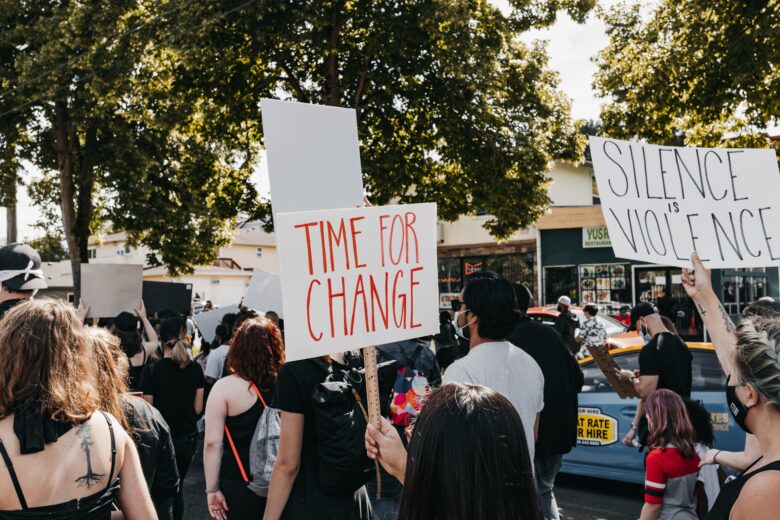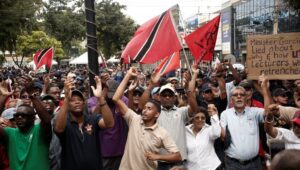“We Don’t Need No trouble. All We Need Is Love.”
The issue of constitutional reform is once again on the agenda. This time around, the citizens of Trinidad and Tobago must make a genuine attempt to become involved in the deliberations.
We must oppose any efforts to maintain the current status quo by vested interests seeking to make minor adjustments to our system of capitalist democracy that contain the injustices and inequalities that currently exist in the social order.
We need systemic, structural and institutional changes, not piecemeal reforms, to end the unnecessary suffering and unfair treatment of the citizens. We must end the structural power imbalances and inequalities, the inequity and injustices that pervade the system, and reconcile the needs of the individual with the needs of society.
We must create new organisational models to replace the old and make significant changes to our multi-party representative democracy, particularly in campaign financing. It is imperative that we transcend representative politics where leadership in government makes all the critical decisions without proper consultation, transparency or accountability to the people; and end the decision-making monopoly that the political leadership now possess.
We should now reaffirm our commitment to a genuine participatory democracy in which there are guarantees of respect for free speech and human rights, and which recognises the right of the citizens to assemble and to peaceful protests, the rule of law and due process. And this time around, the citizens must not be alienated from involvement in state policy and process.
The citizens must be genuinely consulted at every stage of the process where possible and must be given avenues for democratic participation, oversight and expression in matters that affect them.
We must ensure that checks and balances are put in place to prevent policies, approaches, and conduct that are corrupt, authoritarian, directive, coercive and repressive by those who possess state control and power. Our leaders must be subject to sanctions for misgovernment and maladministration to end the weakness in our representative political system where there is no accountability after being elected.
The time has come in our struggle for the continuing advancement of our democracy when we must find a model of governance and organisation that is not hierarchical (top-down), bureaucratic or authoritarian but must operate democratically.
It must be an instrument through which the interests of all the citizens are taken into consideration. It must not be a government that protects and safeguards the interests of the few (the economically dominant class) and limits popular power and participation of the people in the democratic process.
Its approach must be one of inclusion, involvement and participation of the people in governance, thereby facilitating the development of community power. The focus must be on the genuine transformation of our political, social, economic and cultural sectors.
The government must promote, with concrete actions, genuine mutual respect, trust, understanding, tolerance and friendship among groups and individuals in our multi-ethnic and multi-cultural society. It must create policies and implement strategies to combat and eradicate racism, chauvinism, racial discrimination and prejudice and promote inter-racial solidarity.
We must remember and recognise our historical struggle against colonial exploitation and oppression for national liberation and build a democratic society that respects human rights, human dignity, and equality and promotes justice, institutional fairness and equity for all.
The government, in the future, must focus on the training, education, empowerment and encouragement of the people, particularly the youth, to develop self-respect, self-esteem, self-awareness, non-market values, and national and social consciousness. This approach will lead to creating an environment of peace, solidarity, equity and harmony in society. The aim must be to reeducate and refocus our people to focus on becoming skilled, efficient, mature, responsible, empathetic, compassionate, tolerant and ethical.
The citizens must become politically and socially conscious and involved in their communities. They must develop into problem solvers and holistic and critical thinkers engaged in positive, transformative and systemic changes in the social order.
The progressives in our society, those who see the need for change, must now intensify their efforts to advance the movement for our society’s political and economic democratisation. They must ensure that their voices are heard, by being involved, if necessary, in non-violent direct action to promote positive and just changes in the society.
The citizens of Trinidad and Tobago have a moral duty to use this opportunity to restructure, refocus, and transform our emerging democracy to end the perpetual cycle of economic struggle and misery experienced by most people. Therefore, we must redouble our efforts to establish a social order free from class, race, and gender inequalities.
We must persist in our struggle to build a nation where solidarity and community become more important than rapacious individualism, materialism, the maximisation of profits and wealth accumulation, which has a high human and social cost.



